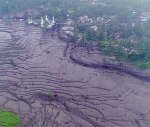You are here
Why Sweden has recognised the state of Palestine
Nov 16,2014 - Last updated at Nov 16,2014
During the last few weeks, following the decision by the Swedish government to recognise the state of Palestine, the embassy of Sweden and I have received letters, phone calls and numerous messages of support from people here in Jordan.
So let me extend my personal, as well as the Swedish government’s, gratitude for all your warm words and positive expressions of support.
I am both delighted and humbled by the attention, which bears witness of the strong commitment of the Jordanian people to Palestine and to peace in the Middle East.
I would like to take this opportunity to reflect a moment on the reasoning behind this decision.
Sweden has always had a long-term and broad engagement with the Middle East. A cornerstone is our firm commitment to finding a lasting peace in the region. A peace whereby the state of Israel can live side by side in peace and security with a democratic, cohesive and viable Palestinian state.
The Swedish government’s decision to recognise the state of Palestine is part of this long-standing commitment and comes at a critical time.
Over the last year, we have seen how the peace talks have again stalled, how new settlement decisions on occupied Palestinian land have hampered a two-state solution and how violence returned to Gaza and recently also to Jerusalem.
Sweden’s recognition is a contribution to a better future for a region that for far too long has been marked by frozen negotiations, destruction and frustration. Too many lives have been spent.
First of all, by recognising the state of Palestine, Sweden wants to lend its support to the moderate Palestinian forces — those who will manage the complex Palestinian state-building process and those who will soon again have to sit at the negotiating table.
Second, my country wants to facilitate an agreement by making the parties to peace negotiations less unequal.
The objective is to enable Israel and Palestine to live within mutually recognised borders, with the 1967 borders as the basis and Jerusalem as the capital of two states, and where any land swaps will only be accepted if negotiated by the parties.
We share these goals with Jordan and the wider international community.
And third, we hope to contribute to more hope and optimism among the young Palestinians and young Israelis who might otherwise risk being radicalised in the belief that there is no alternative to violence and the status quo.
We also want to send a message of hope to the entire region. As we all know, this conflict has implications beyond just Israel and Palestine.
In 2009, EU member states reiterated their readiness to recognise a Palestinian state, when appropriate.
Sweden wants to lead the way. In view of the difficult situation in the region, my government saw no reason to further delay a Swedish decision. We hope that this may show others the way forward.
Sweden’s recognition of the state of Palestine will be followed by increased support to Palestinian state-building efforts and the development of democracy and human rights in Palestine.
Recognition also entails greater responsibility. Sweden will make clear demands on Palestine, just as we do on Israel.
These will include fighting corruption, respecting civil and political rights and increasing the influence of women.
Obviously, this also means a complete renunciation of violence.
There are those who will argue that the decision is premature. If anything, Sweden fears it may be too late.
My government will now, together with Jordan and other regional and international actors such as the EU, the US and the UN, work to support renewed negotiations on a final status settlement.
Such a settlement must be negotiated in accordance with the principles of international law and guarantee both the Palestinians’ and Israelis’ legitimate demands for national self-determination and security.
Let me finally express my deep concern over the situation in Jerusalem, with renewed violence around Al Aqsa area and on the West Bank.
Sweden urges both sides to act responsibly and work to de-escalate tensions.
In this regard, let me express my support for the crucial role played by His Majesty King Abdullah as custodian of the holy sites in Jerusalem.
We need to isolate extremists on all sides and support moderate and non-violent forces that work to promote democracy, human rights and gender equality.
Jordan and Israel have a peace treaty in place, which constitutes a tremendous contribution to peace in the Middle East.
Israel and Palestine are already living side by side. They should both be able to do so in peaceful coexistence and within secure and recognised borders.
The purpose of Sweden’s recognition of Palestine is to contribute to such a future.
The writer is the ambassador of Sweden to Jordan. She contributed this article to The Jordan Times.











